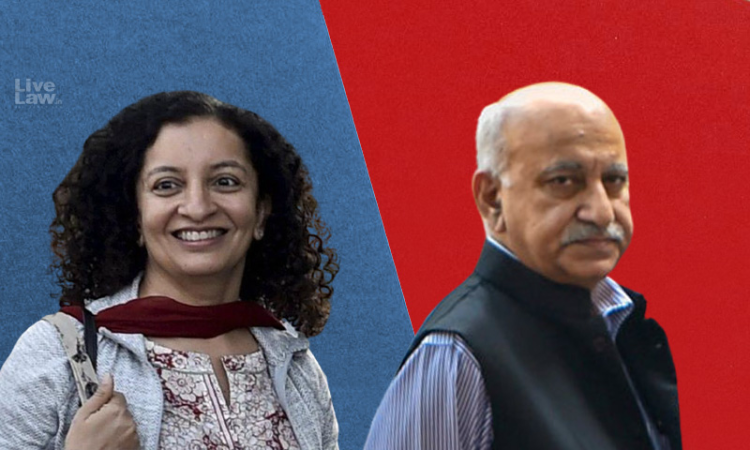Delhi High Court Admits MJ Akbar's Appeal Against Priya Ramani's Acquittal In Criminal Defamation Case
Suhavi Arya
13 Jan 2022 3:01 PM IST

Next Story
13 Jan 2022 3:01 PM IST
The Delhi High Court today admitted the appeal preferred by former Union Minister MJ Akbar, against acquittal of journalist PriyaRamani in the criminal defamation case filed by him over the "metoo" sexual harassment allegations made by her.While admitting the appeal, Justice Mukta Gupta remarked that there is no need to argue for the 'need to appeal' as complainants have the right to prefer...
